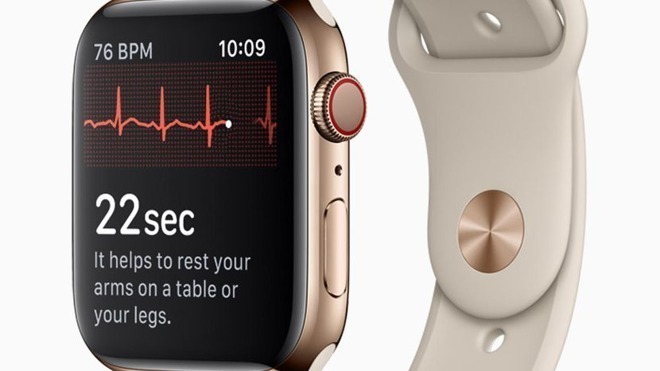The Apple Watch has been credited with saving another life, with one Ohio resident warned of having a high resting heart rate, which was found to be an atrial flutter.
Zachary Zies, a 25-year-old recent graduate from Ohio State University, is a long-time sufferer of Friedreich's Ataxia, a rare genetic disease that can affect the brain, spinal cord, and heart, which can cause impairments in speech and difficulty in walking, among other issues. In a recent incident, an issue with Zies' heart was discovered by the Apple Watch.
Zeis was informed by the Apple Watch he had a high resting heart rate in the region of 210 beats per minute, reports NBC24, an extremely high heart rate and a potential indicator of an underlying health issue. Acting on the notification, Zeis got in contact with his healthcare provider, and underwent an atrial ablation to correct what was determined to be an atrial flutter.
"The Apple Watch was pretty much telling me something is up, and you need to go in and get help to see what's actually wrong," said Zeis. With his heart rate now lower, Zeis believes he is mostly recovered from the episode.
Apple has included a number of features in the Apple Watch to warn users of their pulse, including irregular heart rhythm notifications. These notifications also include instances when the heart rate rises above or below predefined levels for extended periods of time when the user isn't working out.
Such notifications have helped save numerous lives over the years, such as an Oklahoma teenager in 2019 being alerted of a 190bpm heart rate while sat in class, which was later found to be Supraventricular Tachycardia. In 2018, a man was alerted to a high heart rate, prompting him to check with doctors and resulting in a diagnosis of atrial fibrillation.
The health benefits of the Apple Watch, including heart rate notifications, fall detection, and the push for users to get fitter, has led to the wearable device being offered as a promotional item by some insurers, to try and encourage more customers to live a healthier life.
 Malcolm Owen
Malcolm Owen







-m.jpg)






 Bon Adamson
Bon Adamson
 Marko Zivkovic
Marko Zivkovic
 Wesley Hilliard
Wesley Hilliard
 Amber Neely
Amber Neely


 William Gallagher
William Gallagher





-m.jpg)



4 Comments
I assume you meant to write atrial flutter?
As technology advances we can expect more and more sensors and features to be added to wearable devices like the Watch. At some point these devices will be standard issue from healthcare insurance programs, doctors, hospitals, etc.
You would probably think that a person would know when their heart goes up to a high rate, perhaps like how you feel when doing heavy exercise. But nope, you don't feel anything (at least not in my case.) My particulars were a little different from this man's story, (treatable with medication) but it was my Apple Watch Series 5 that detected my problem. I had no idea my heart was racing. The hospital nurses were very impressed that my Apple Watch notified me of my condition. One of them called their hospital friends over to see me and my Watch while I explained how it worked to them. And one said, "I gotta get me one of those, even though I don't need it for my heart."
I think this shows that for every individual rescued by an Apple Watch that AppleInsider writes about, there are probably ten more that just don't get documented because you never know about them.